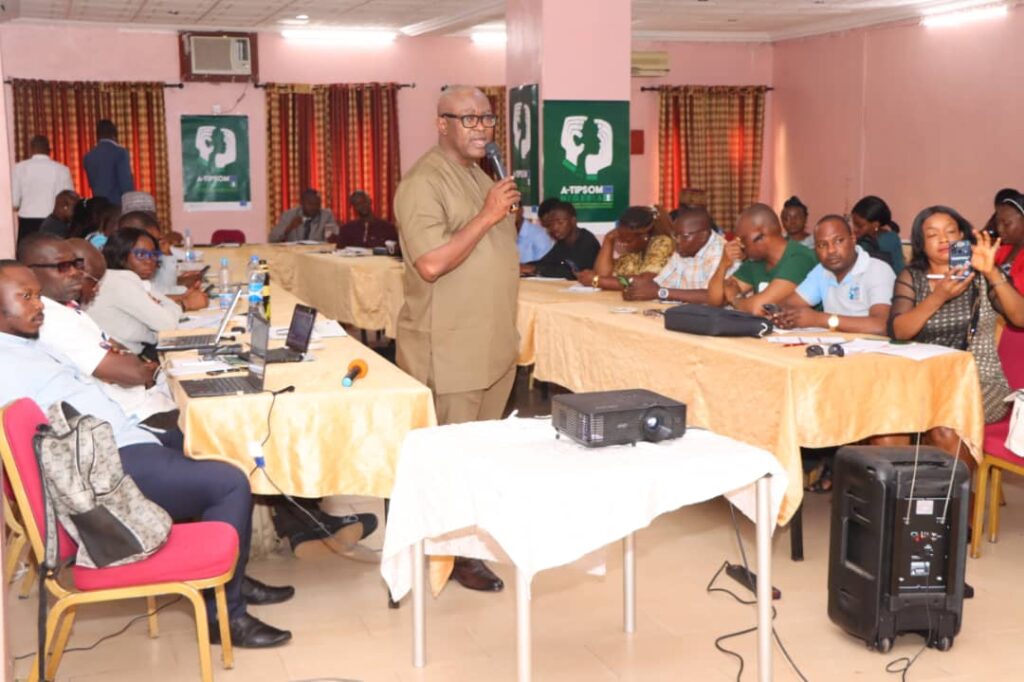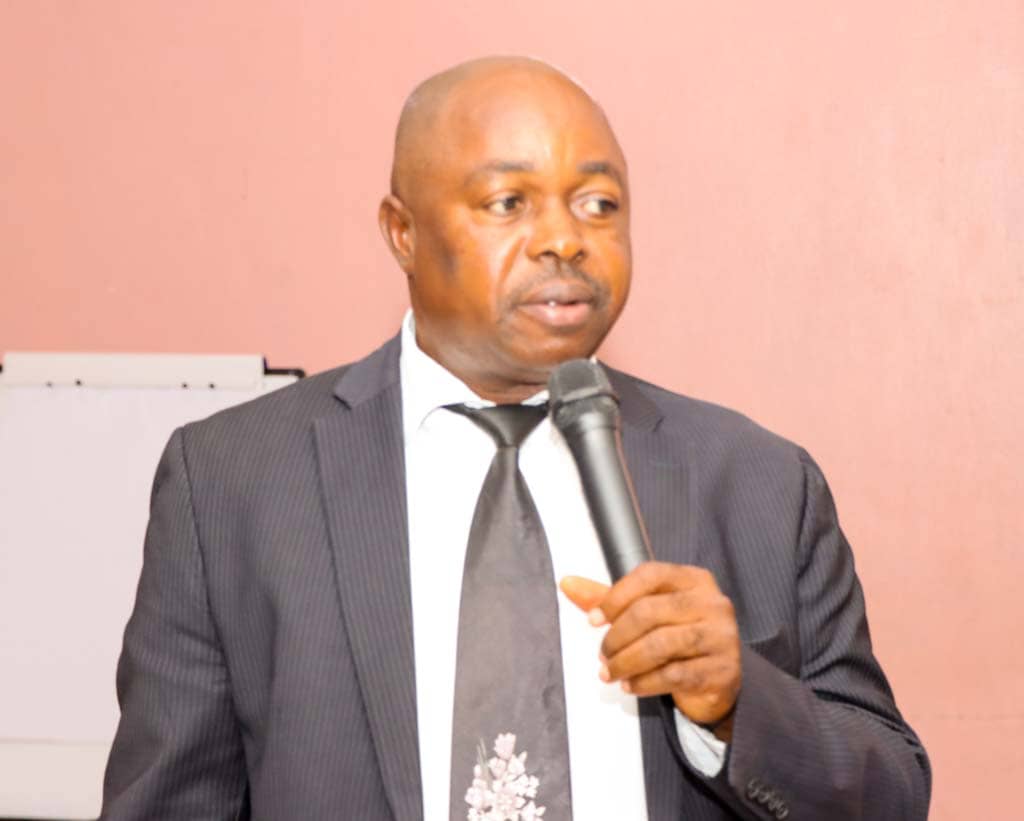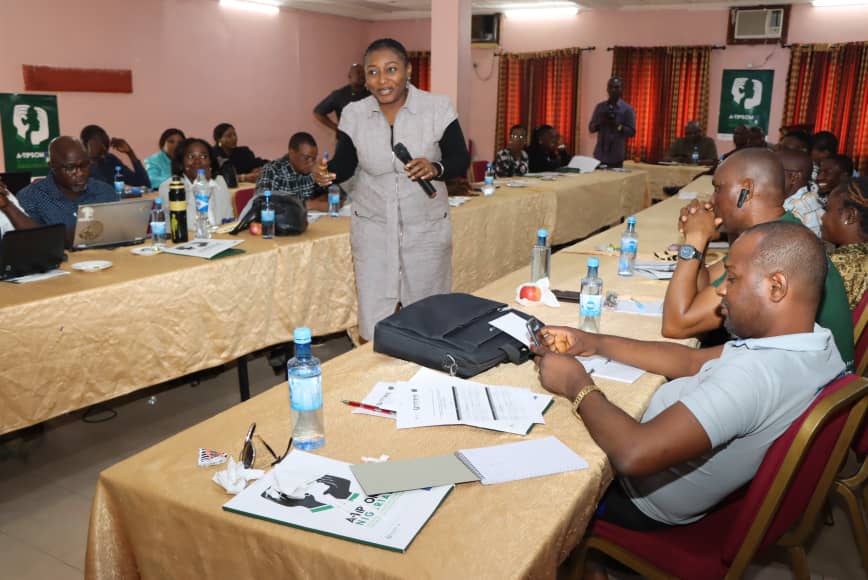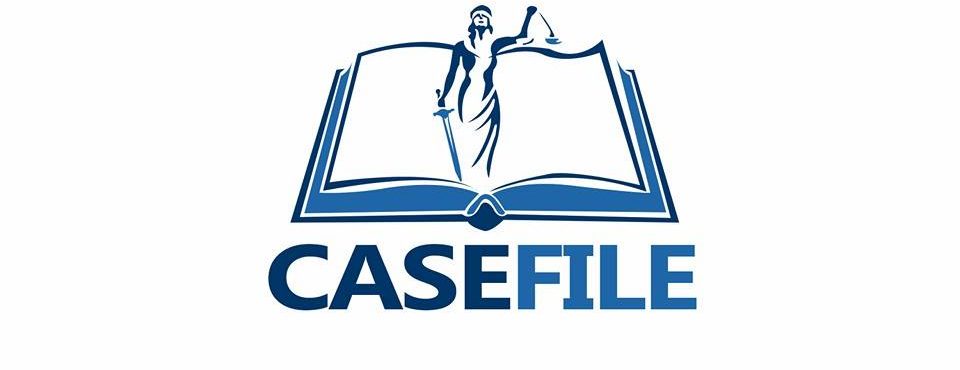Media practitioners have resolved to crusade against Trafficking In Persons, TIPs, and Smuggling Of Migrants, SOMs through media reportage to end the menace in the country.
Joining the fight being championed by the National Agency for Prohibition of Trafficking in Persons, NAPTIP, the media is poised to increase the tempo of reporting crimes against humanity from the point of knowledge by latching on the standard reporting template.

This resolution was hinged on the communiqué reached with stakeholders in Asaba, Delta State capital recently.
According to the journalists, they would be professional in reporting on Human Trafficking to avoid stigmatisation and re-traumatisation of victims.
On 7th June to 9th June, 2022, NAPTIP, concluded second in its series of training for media practitioners, towards ending trafficking in persons and smuggling of migrants.
The training was organsied by Dr. Fatima Waziri-Azi led NAPTIP through the Action Against Trafficking In Persons and Smuggling Of Migrants in Nigeria, A-TIPSOM, project funded by European Union, EU, and implemented by the International and Ibero-American Foundation for Administration and Public Policies, FIIAP.
Resolutions reached centred on a 20-point recommendations as thus:
1. The need for robust synergy between NAPTIP and other law enforcement agencies in tackling the menace of human trafficking.
2. Involvement of religious leaders in the sensitisation and campaign against human trafficking.
3. More media practitioners should volunteer and support anti-trafficking efforts in their communities.
4. NAPTIP should encourage the use of social media platforms to raise awareness on human trafficking, using hashtags like: #endtrafficking, #freedomfirst, #saynototrafficking, etc.
5. The media should protect victims of human trafficking by concealing their names, pictures and home addresses in their reportage.
6. Federal Government should improve funding of NAPTIP.
7. Journalists should be regularly supported through adequate capacity building and financing to facilitate investigation of human trafficking stories and justice for victims.
8. State Government and private sectors should get more involved in anti-trafficking initiatives through funding and provision of socio-economic empowerment programs.
9. Government at all levels should live up to expectation by creating job opportunities for the teeming youths and provide security for all.
10. Chief Judges of Federal, State and FCT High Courts are implored to designate more judges for accelerated hearing of human trafficking cases.
Read Also:
11. Government should support the building of more shelters and Skills Acquisition centre for victims, to hasten psycho-social rehabilitation.
12. Federal Government should as a matter of urgency, create a space at the entry and exit points of the country for NAPTIP officials, to identify and rescue potential victims and arrest suspected Human Traffickers.
13. There is need for more collaboration between NAPTIP and the Federal Ministry of Labour and Employment for adequate monitoring of activities of job recruiting agencies within and outside Nigeria.
14. There is need for robust collaboration between NAPTIP and traditional institutions for enhanced information on activities of Human traffickers.
15. The Media needs to do more on Human Trafficking reportage.
16. Human trafficking reportage should be done from victims’ perspective and it is important for journalists to avoid reporting cases that could put victims at risk or make suspects escape.
17. Efforts of FIIAP through the European Union funded project A-TIPSOM is appreciated and should be emulated by other international agencies.
18. NAPTIP and sister agencies should share more data for enhanced reportage on Human Trafficking.
19. Government should hand over abandoned shelters to NAPTIP.
20. NAPTIP should standardise data collection process.
21. Journalists should be professional in the reportage on Human Trafficking to avoid stigmatisation and re-traumatisation of victims.
The above were necessitated on the identification of the seeming gap between NAPTIP and members of the press, brought to the bare at the 3-days training and capacity development engagement.
The media acknowledged a consensus that both parties need to strengthen their partnership, build trust for impactful reportage of TIP related issues.
Adding that that many Nigerians fall prey to traffickers as a result of failure of government which has led to widespread insecurity, unemployment, poverty, illiteracy, hunger, quest for better living condition, as well as ignorance on the part of the victims.
The participants also observed that NAPTIP is not adequately funded to carry out the onerous task of combating human trafficking and at the same time, creating robust grassroots awareness across the 774 LGAs of the country.
It was argued that the media was not giving prominence to human trafficking issues in terms of story placements, features, special reports, analysis and overall critique of policies and frameworks operational in the country.
Further observation revealed that inadequate is a challenge in the operations of NAPTIP.
Inability of NAPTIP to get more and bigger shelters were discovered to have limited the number of survivors they can take in at a time, thus, hampering the chances of re-integrating more survivors.
Bureaucratic bottleneck involving MDAs tends to affect the fight against Human Trafficking, thus endangering lives of victims.
The Director Public Enlightenment, Mr. Josiah Emerole harped on the need for media to educate the public on issues of TIPs and SOM.
Emerole advocated that the sensitisation should be done to enable criminal elements desist from engaging in sexual exploitation, forced labour, debt bondage, child labour, forced marriage, rituals for organ removal and buying and selling of human beings.
He also reiterated some measures the agency has taken to rescue some victims, such as introduction of NAPTIP short code of 627, besides the hotlines, 0800CALLNAPTIP, 07030000203, 08002255627847 amongst other platforms available for members of the public to report violence against persons offences to the agency.
The agency’s Public Relations Officer, Mr. Vincent Adekoye, on his part emphasised the need for the media to intensify reportage on human trafficking, in order for accurate dissemination of the subject to every Nigerian, with a view to preventing more youths from falling victims to human traffickers.

While the NAPTIP Lagos Zonal Command Public Relations Officer, Mrs. Hajara Tunde-Osho, advised the media to be avoid using terms that could be detrimental to people’s reputation while they are trying to tell stories as journalists.

She added that participants do not have to employ misinformation or disinformation through the use of the media to tell compelling stories.
Previously:



